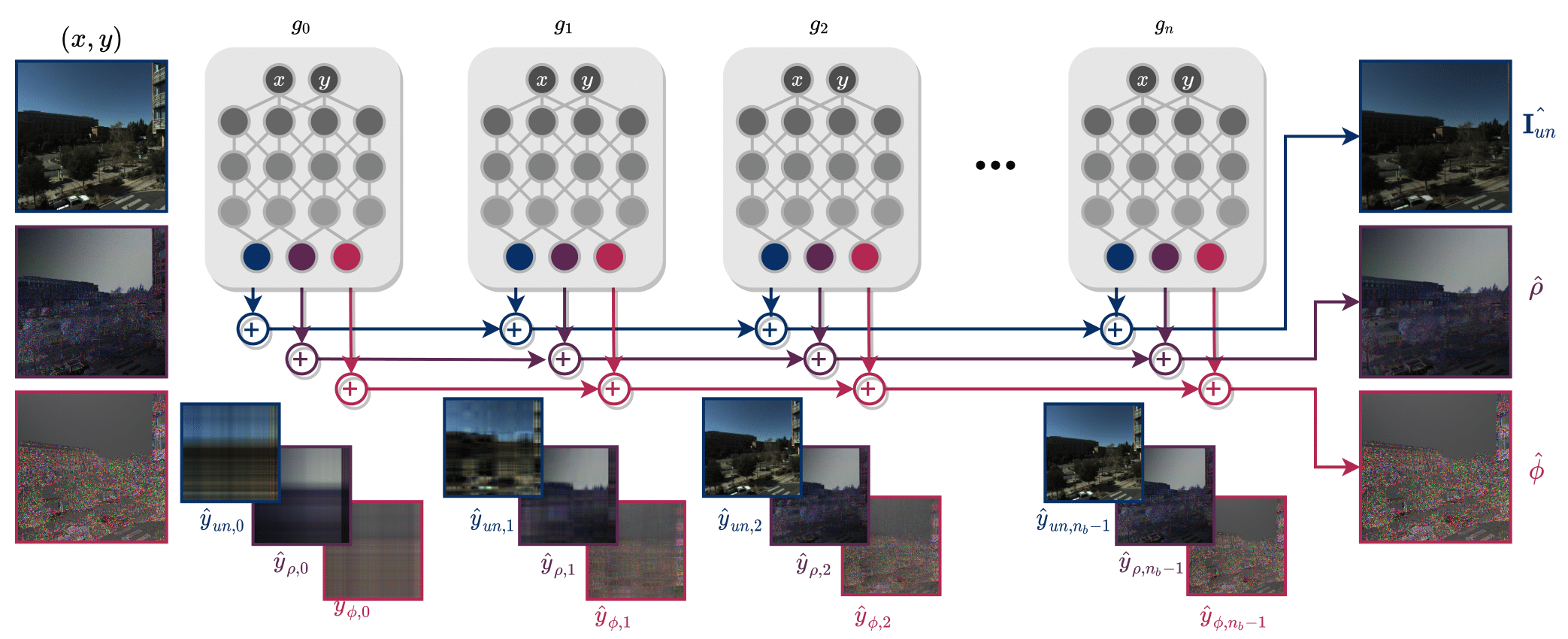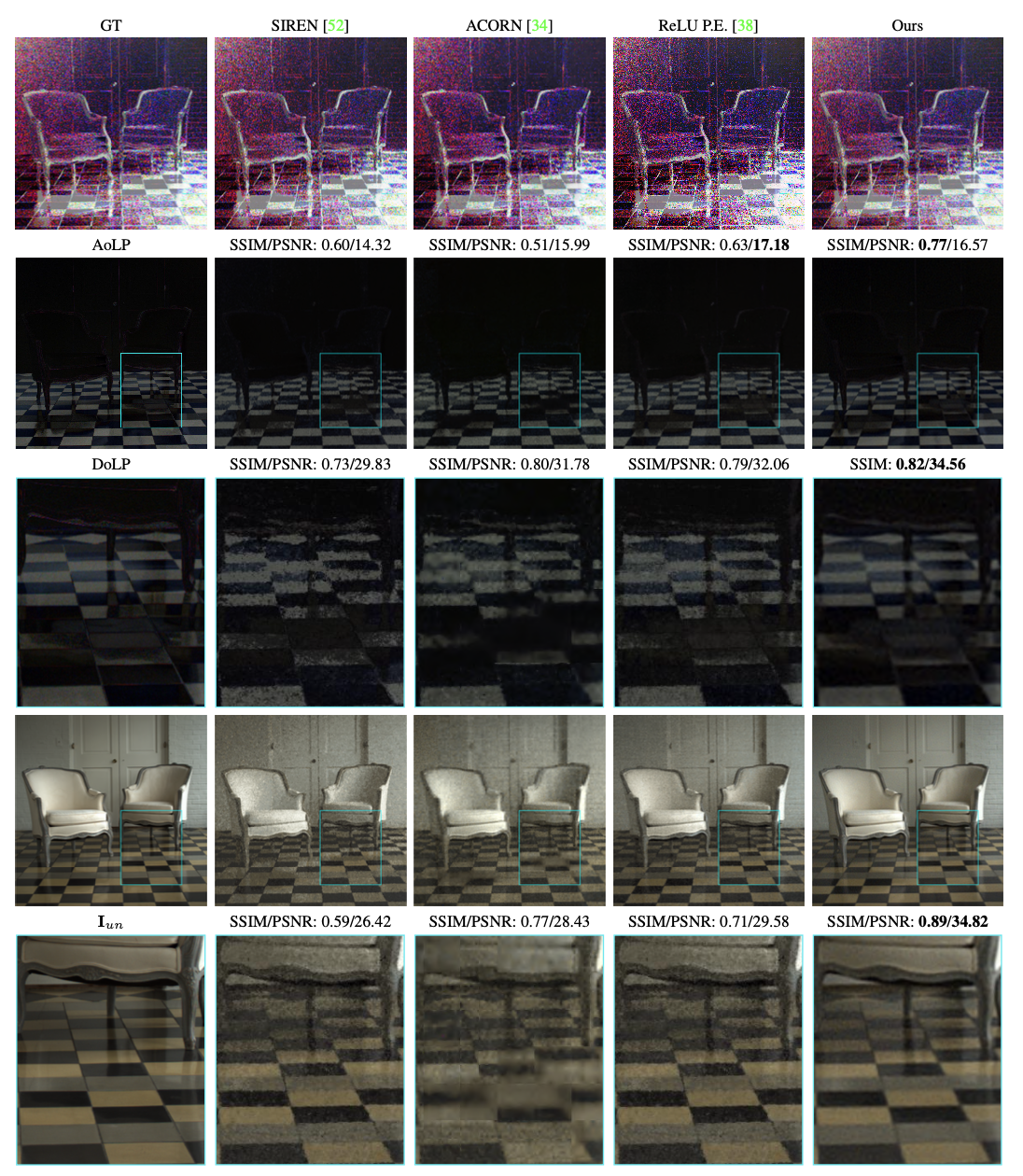pCON: Polarimetric Coordinate Networks for Neural Scene Representations
Henry Peters1 Yunhao Ba1 Achuta Kadambi1
University of California, Los Angeles1
CVPR 2023, Vancouver, Canada pCON learns to fit an image by learning a series of reconstructions with different singular values.
pCON learns to fit an image by learning a series of reconstructions with different singular values.
